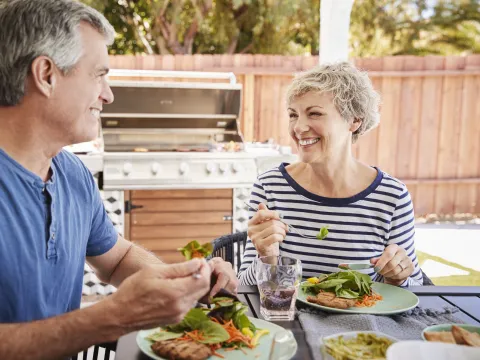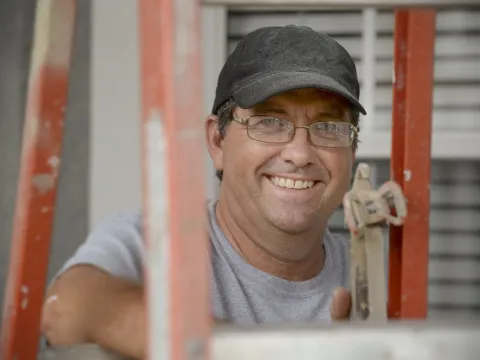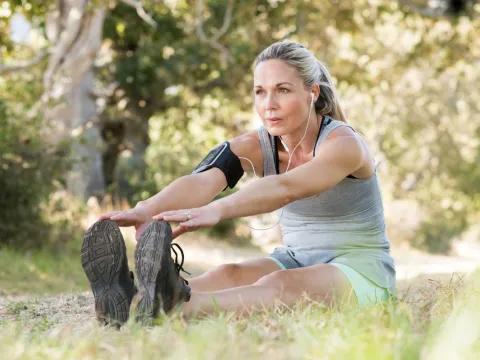- AdventHealth

First, let's define what the function of the two organs are. The purpose of the kidney is to filter blood, which then creates urine. The job of the gallbladder is to store bile produced by the liver, which aids in the digestion and absorption of fats.
Each one can produce a stone. A kidney stone is a solid mass made up of tiny crystals from the minerals calcium, oxalate and uric acid. Gallstones are hard, pebble-like cholesterol or pigment deposits that form inside the gallbladder. They can be as small as a grain of sand or as large as a golf ball. There can be one or more stones in the kidney or gallbladder at the same time.
People who have had a kidney stone seem to have a heightened risk of gallstones and vice versa, according to Juan Omana, MD, general surgeon at AdventHealth.
Who is At Risk for Gallstones?
Hispanic or Native American women over the age of 40 with diabetes, obesity, or rapid weight loss are most likely to have gallstones.
Who is At Risk for Kidney Stones?
Kidney stones are more prevalent in men over 40, than in women. A person with one stone has a 50 percent chance of developing another over the next 10 years.
Symptoms of Gallstones
Dr. Omana explains, "Most people with gallstones experience no symptoms, but when they do, they experience pain in the upper right abdomen, back pain, nausea or vomiting."
Symptoms of Kidney Stones
Some kidney stones will go unnoticed as well. The pain is described as sharp cramping pain in the back and side near the kidney. Nausea or vomiting and blood in the urine are also symptoms. If they are large, they can stretch and irritate the ureter, blocking urine and causing excruciating pain.
Treatment for Gallstones
There may never be any symptoms for gallstones, but patients with symptoms need surgery right away. "Unlike in the treatment of kidney stones, removing the gallbladder is the most common way to get rid of gallstones," explains Dr. Juan Omana. Laparoscopic cholecystectomy is the most common procedure for removing the gallbladder. You can eliminate the stones while preserving the gallbladder, but it is not recommended because you will most likely produce more stones. Fortunately, the gallbladder is an organ you can live without.
Treatment for Kidney Stones
Smalls stones can and will usually pass on their own. The patient can stay home drinking liquids and taking pain medication as needed, until the stone passes. If pain is too severe or a stone is blocking the urinary tract, then a medical procedure called lithotripsy can be performed to remove the stone.
Prevention of Gallstones
Diet plays a major role in the prevention of gallstones. Maintaining a healthy, balanced lifestyle is the best prevention for gallstones.
If you lose weight, do it slowly and correctly. Don't skip meals and exercise regularly. Talk with your doctor if you are taking estrogen hormones or a high-dose of birth control pills.
Prevention of Kidney Stones
Dr. Omana says, "Preventing kidney stones is as easy as drinking lots of water and liquids throughout the day."
People prone to forming calcium oxalate stones may be asked to limit or avoid certain foods containing those chemicals.
Feel Confident Getting the Care You Need
If you're experiencing symptoms of gallstones or kidney stones, it's important to get medical attention right away. If you visit an AdventHealth facility or provider for care, you’ll see we’re taking these precautions to keep your care safe:
-
Treating all symptomatic and COVID-positive patients in separate areas of the facility
-
Social distancing in waiting areas
-
Temperature checks upon entering our facilities
-
Universal mask use for staff, patients and visitors
-
Visitor limits at some locations
For your safety (and the safety of our healthcare team), we’ll continue with these measures for as long as necessary. We’re working hard to help you stay healthy and get back to the life you love. Learn more about our Digestive Care experts.
Find Relief at AdventHealth
If you're experiencing symptoms that might be gallstones or kidney stones, it's important to get medical attention. Head to your nearest AdventHealth Emergency Room for a diagnosis and treatments that will set you back on your path to health.



